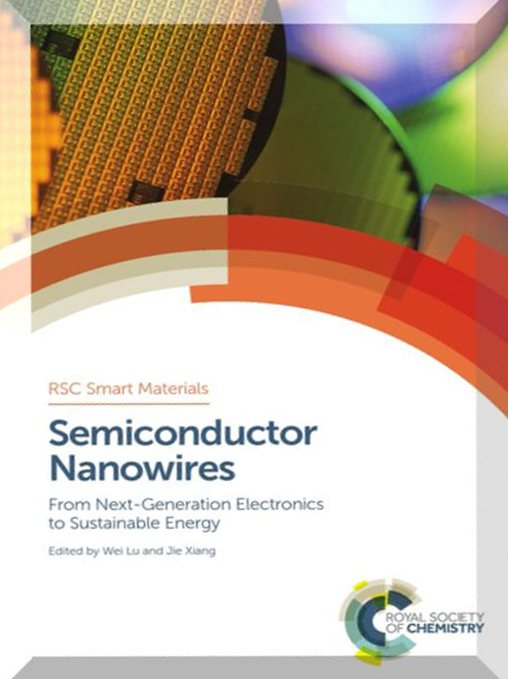Prof. Wei Lu editor of new book – Semiconductor Nanowires: From Next-Generation Electronics to Sustainable Energy
The book is part of the Royal Society of Chemistry’s Smart Materials series.

 Enlarge
Enlarge
Prof. Wei Lu has published the book, Semiconductor Nanowires : From Next-Generation Electronics to Sustainable Energy. It is part of the Royal Society of Chemistry’s Smart Materials series, and co-edited by Prof. Jie Xiang from the University of California, San Diego.
Semiconductor nanowires were initially discovered in late 90’s and since then there has been an explosion in the research of their synthesis and understanding of their structures, growth mechanisms and properties. The realisation of their unique electrical, optical, and mechanical properties has led to a great interest in their use in electronics, energy generation, and storage.
Prof. Lu’s book provides a reference on semiconductor nanowires, including an introduction to their synthesis and properties and specific chapters focusing on their different applications. These include photovoltaics, nanogenerators, transistors, biosensors, and photonics. This is the first book dedicated to Semiconductor Nanowires and provides a resource for researchers working in the area, those new to the field, and for individuals interested in commercial applications.
Prof. Lu has been working on semiconductor nanowires since 2003. Among his achievements in nanowire research include the development of Ge/Si core/shell heterostructure nanowires and their applications, the synthesis and application of n-type Si nanowires, metal/semiconductor nanowire heterostructures, nanowire-based nanoelectromechanical systems, and the growth and applications of transparent conducting oxide nanowires. Currently his group works on the development of vertical nanowire transistors and photodetectors, and memory and logic devices based on two-terminal resistive switches (memristors).